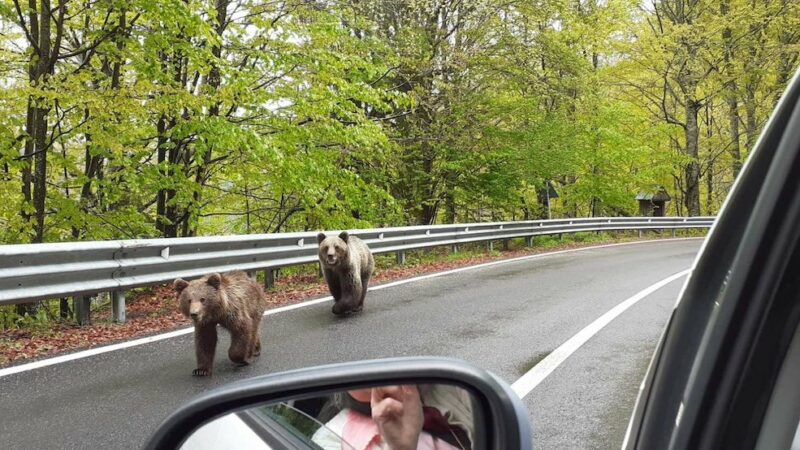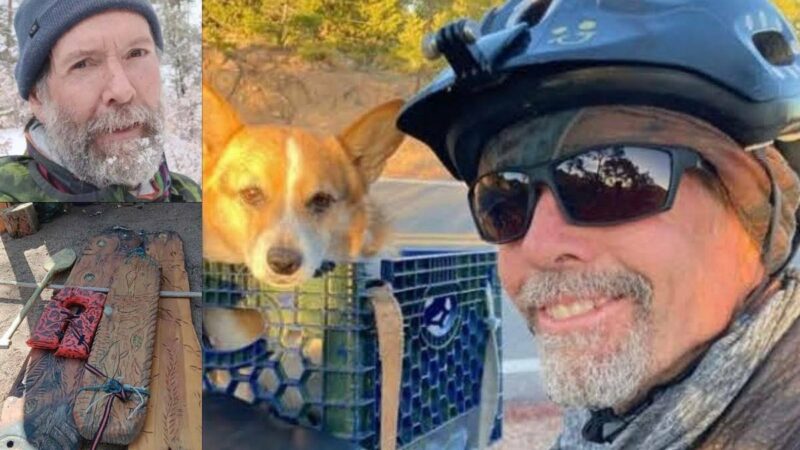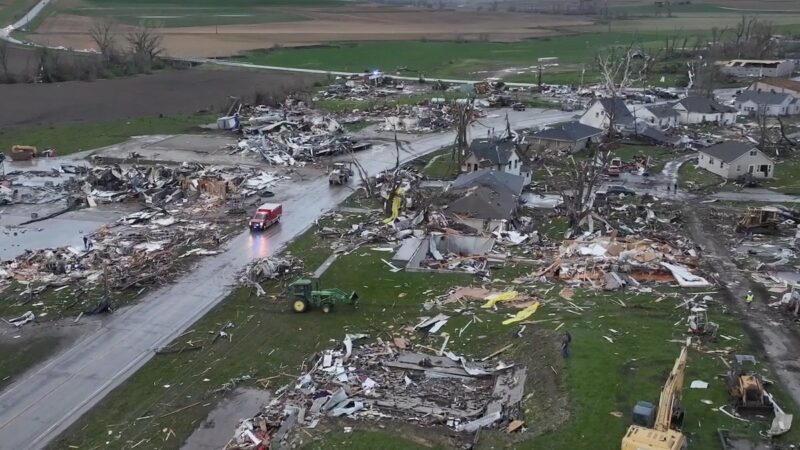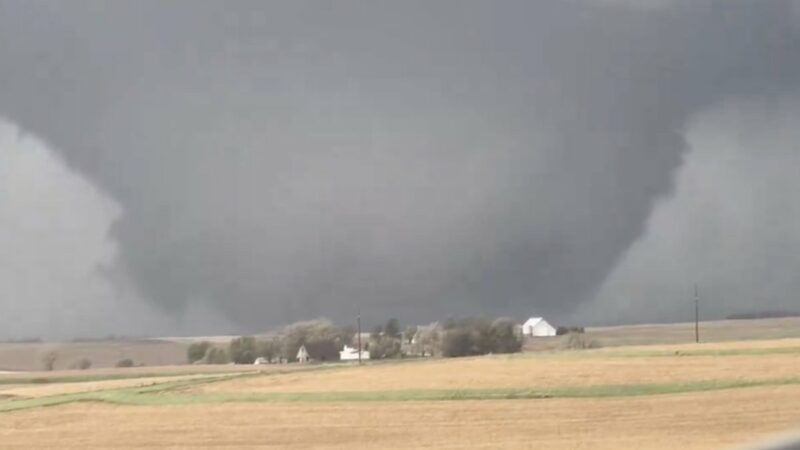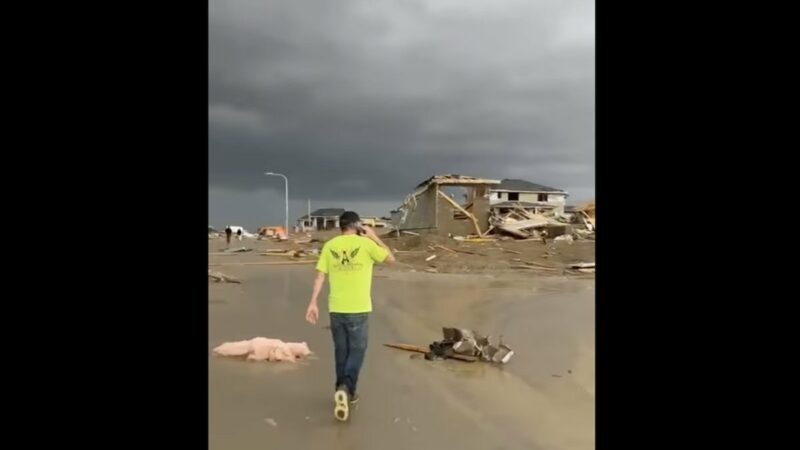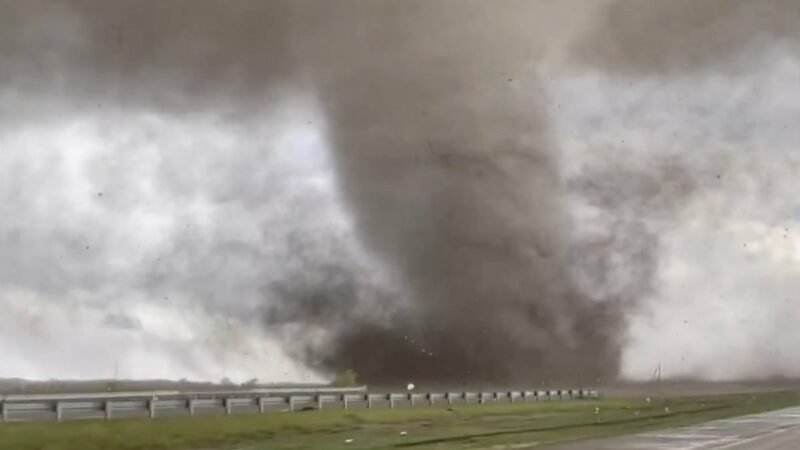How to Be a Campground Host, Plus Benefits and Challenges of the Role
Campground hosting is an excellent opportunity to give back while enjoying a season outdoors. Kevin Manning, along with his wife Pauline, knows that there are innumerable benefits of hosting. They have been hosting a campground at California’s Sue-meg State Park for the past 10 summers.
“In our mind, we were just going to try on volunteer hosting for a season or two and see how we liked it,” Kevin Manning says. Despite the hardships that come with the role, the couple fell in love with the job. During the Mannings’ time as hosts, they have come to find community, joy, and a sense of accomplishment alongside getting to wake up in one of their favorite places each morning.
Is campground hosting something you’ve considered? For anyone considering it, Manning filled us in on the process, revealed the best aspects of taking a role within a state or national park, and shared some important nuances to consider.
The Hiring Process
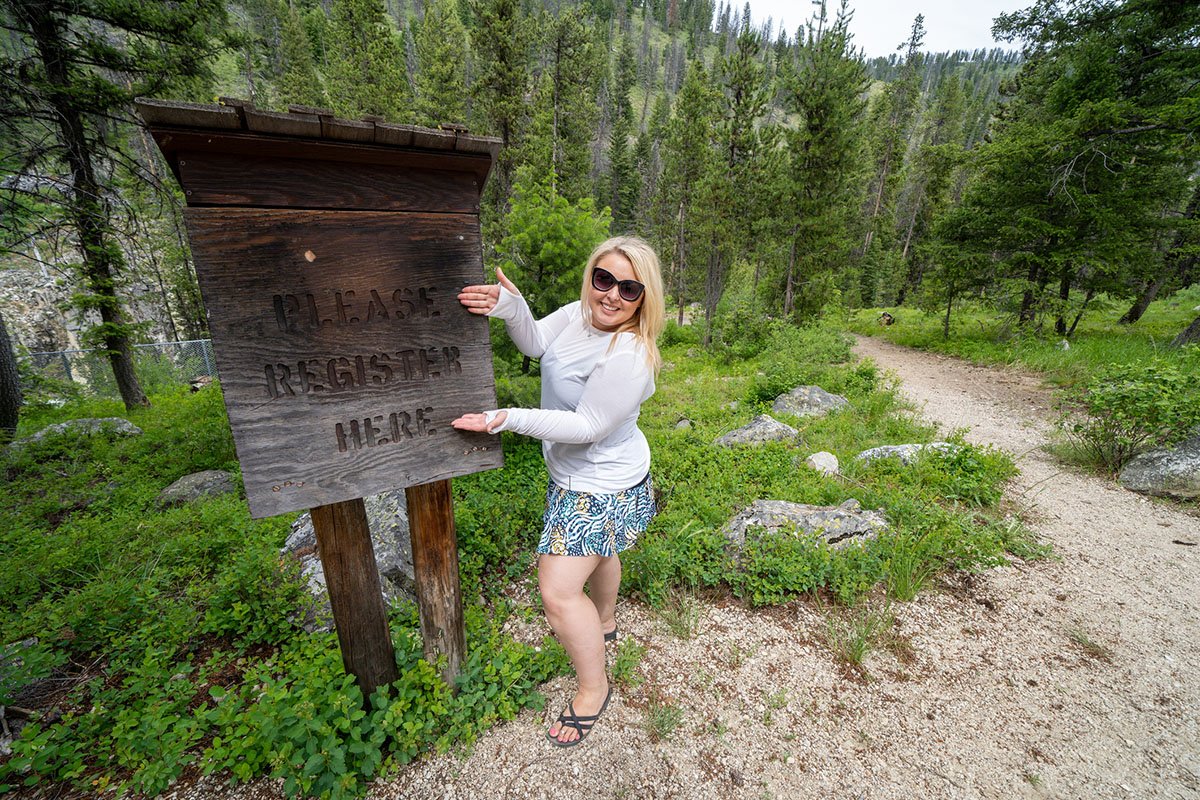
Volunteers who wish to host at a campground within a state or national park must file an application with the park or district they’d like to serve. To volunteer for any position within a state or national park, one can find an application on the respective site.
The application details might differ depending on where you are applying, but it will generally require basic information, emergency contacts, and references, as well as brief questions on qualifications, skills, and previous experience. It will also ask what your availability is and how long you can commit to the role. For campground hosting, some locations may require a minimum number of months volunteers must commit to serve. Glacier National Park, for example, requires a commitment of at least three months while California State Parks require a minimum of one month.
Another very important part of the application process is a background check. Manning explains that even though this is a volunteer job, a background check is required, because camp hosts are trusted with handling money from firewood sales and site fees and are directly interacting with families.
Once your application is submitted, it “usually goes to a ranger, supervising ranger, or an administrative representative that handles that,” Manning says. “They read it. Usually, they’ll call you and talk to you [in an informal] interview process. When an opportunity comes up, they’ll contact you and say, ‘Hey, we got this opening. Are you interested?’”
Once you’ve spent a season as a host, the park you worked for may call to see if you are interested in volunteering again the next year. Depending on the park, recurring volunteers may not have to reapply each year. Opportunities and applications for national parks can be found here, and for state parks, search for the state or park name followed by “state park camp host jobs.”
Duties of the Job
Campground hosting is not just kicking your feet up and relaxing all summer by the river (though there is time to do this too). Just as the application process will be dependent on the park you serve, there might be slight differences in the duties and hours required by each park. Generally, though, a typical day will be around six hours and involve gathering fees, cleaning sites, selling firewood, and relaying any necessary information to other departments within the park.
“The way I tell people is we’re basically the eyes and ears of the park staff,” Manning says. “Your better hosts are going to be interactive with the park staff and interactive with the campers.”
Manning walks me through his typical day.
“We [start with] a camp check, basically go through and [communicating] with the kiosk staff or the entrance station staff who came in overnight that didn’t check in. We’ll make contact with those people and remind them they need to check-in. Then, at that point, we do a little bit of light maintenance and clean up the campsite [after someone who may have] left stuff in a fire pit or damaged something or maybe didn’t take everything out. Then, at that point, it’s kind of whatever the kiosk staff needs us to do, maybe check on certain sites or certain situations, or we got a report of a bad camper, meaning noisy or inconsiderate, and we may have to go make contact with them. Then, we have some downtime.”
“As we get towards evening, we sell firewood and answer questions. A lot of people have questions like: ‘Where do I go? What do I see? I’ve got one day. How do I cover all this?’ We hand out maps and literature and just kind of get everybody on the right path, tell them what’s unique at the park, whether it’s cultural or natural, and try to get them geared towards that,” he explains. “We make sure people are not blaring their radios, make sure that they’re being thoughtful, that they’re not spread out too far, that cars aren’t parked all over the road, make sure that fires aren’t out of control.”
Manning admits that he and his wife go well past the requirements Sue-meg State Park makes of its camp hosts, sometimes working up to 14 hours a day, but they do this because they love their job and want to give back as much as possible.
“We feel this is our way of giving back . . . so we give it as much as we possibly can give it, and it’s very gratifying in that respect,” Manning says.
If there are medical emergencies, malfunctions in the bathrooms, or noncompliant campers, the camp host at state and national parks is able to call on other departments or emergency services to help, which is a major benefit of working within a state or national park. These parks employ law-enforcement rangers and maintenance staff to help with these kinds of extreme issues. Manning says that there is also a central dispatch line to contact in case of emergencies. “We’re not administering first aid or any of that kind of thing, but we’re here to advise if something goes wrong,” he adds.
While a campground host is expected to notify campers of the rules, it should be emphasized that hosts are not enforcement and are not expected to go beyond their duties to maintain the peace within the campground. Manning says that the rangers are there to help at the drop of a hat if campers aren’t following the rules.
“We’ll remind campers of the rules, but if they don’t pay attention or just ignore us, then that’s when we contact the ranger staff,” he says.
Benefits of Hosting
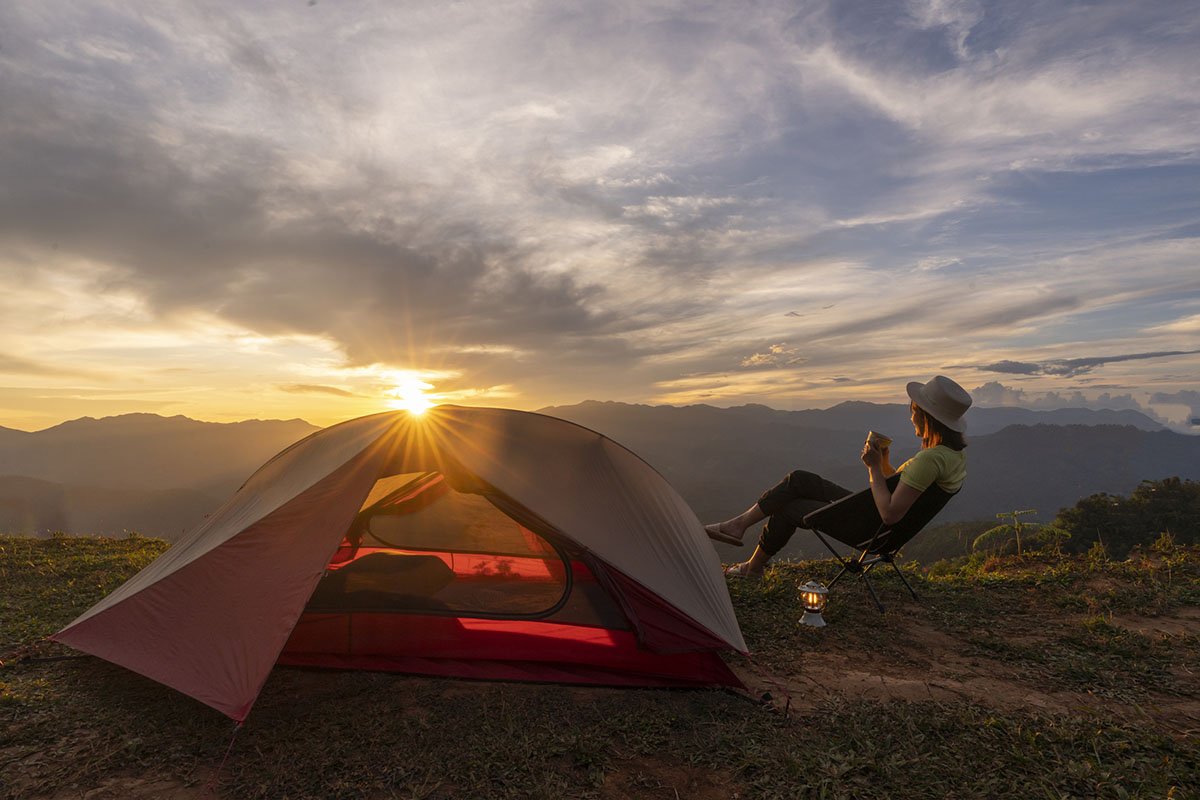
Campground hosting at state and national parks is a volunteer job, which means that there is no money or stipend given to those who choose to host. However, there are still benefits to such a gig. As Manning mentioned, campground hosting is a wonderful way to give back. State and national parks depend on volunteers for campground hosting (and a variety of other functions as well), so this is a fantastic way to ensure the places we love can function and keep up with demand.
Another joy of the job is teaching campers about the area and getting them excited to explore and protect it. Hosts can help advocate for leave-no-trace principles as they talk to guests one-on-one.
“That’s the good part about hosting; you see the excitement,” Manning says. “The kids seeing a banana slug for the first time or people who’ve never seen the ocean before have a chance to see it. They’re just thrilled.”
As a host in the same state park for 10 years, Manning and his wife have come to know some of the families that visit every year, too. It’s like a little community away from home. “We’ve got a lot of friendships up here,” he says.
The most obvious benefit of volunteering as a campground host is getting a free campsite in some of our country’s most beautiful places. Depending on the campground, hosts are usually allowed a campsite with hookups for their RV.
“You don’t pay for electricity or water . . . any of that kind of thing,” Manning says. However, they do buy their own firewood. Manning says that he and his wife do not want for much with their humble setup. They even have a portable Wi-Fi that allows them to stream TV. During the slower parts of the day, camp hosts are allowed to explore the park, making this job almost like a summer getaway.
Challenges of Hosting
The main challenge facing campground hosts is that they are representatives of the park all day. “The reality is if you’re a host and you’re in a campground and your rig is there, whether you put a sign up that says you’re closed or not, you’re still on duty,” Manning says. “People are going to knock on your door during the middle of the night because they have an emergency and they don’t know what to do,” Manning says.
Inherently, hosting puts you in a role that requires socializing. This might mean helping campers find the best trails or activities within the park. However, it can also mean having to walk up to a loud campsite to reiterate the rules of quiet hours or asking campers for their fees if they haven’t paid them. Not everyone will be comfortable in a role like this.
Despite these potential challenges, however, Manning leaves me with this thought: “If you want to volunteer [at a state or national park], I always encourage people. You don’t have to be a campground host. There’s all kinds of stuff you can do, and each department, each division, each park has different things that they need help with. We enjoy what we do and we still look forward to it every year. We feel very gratified, very fortunate to be here.”


